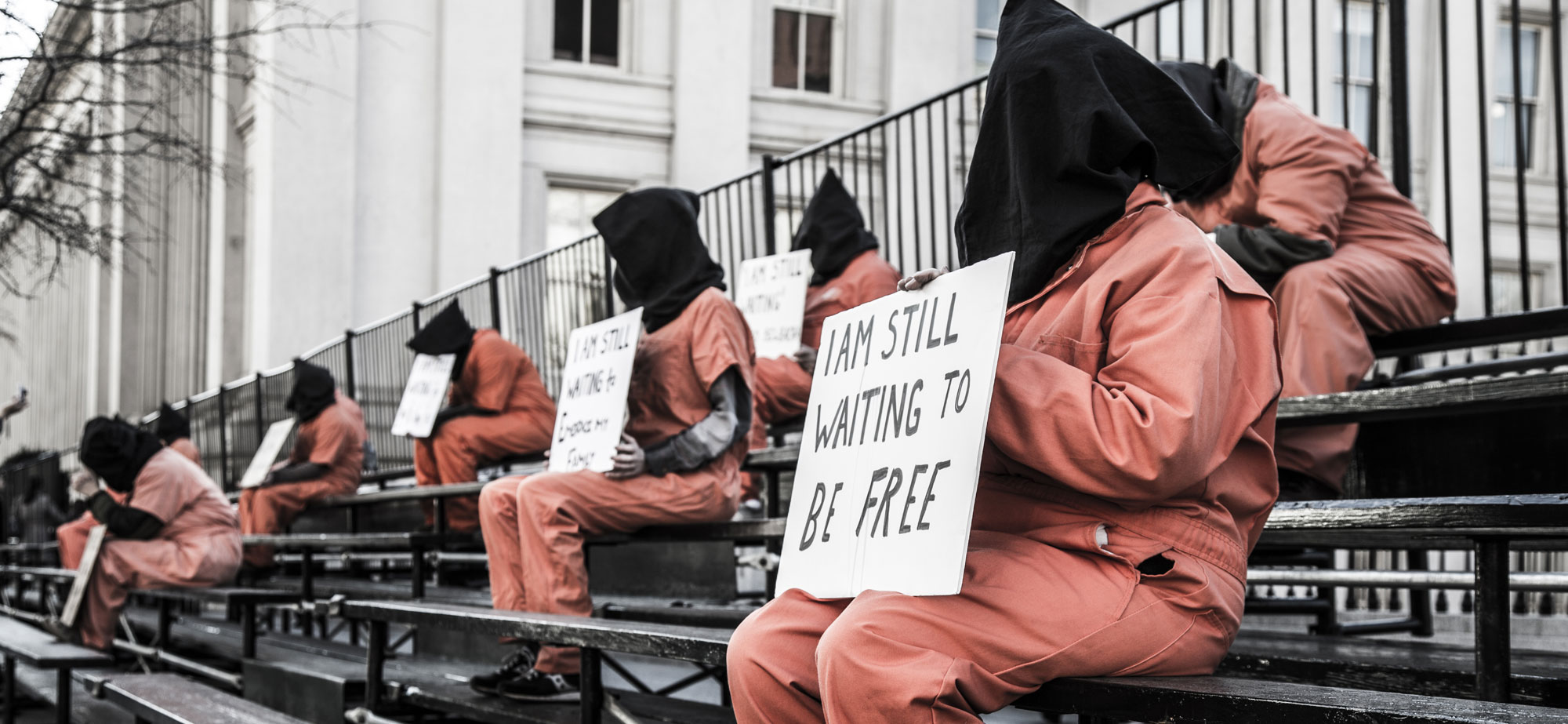In Focus
Torture: The Law is Clear, But the President is Committed to Breaking It

By Matt Hawthorne
President Trump has been called many things, but “principled” isn’t usually one of them. That being said, despite demonstrating an extreme ideological flexibility on most common political flashpoints, on the issue of torture, he might accurately be said to be “principled” – his “principle” being a deep personal commitment to torturing people he thinks deserve it – disregarding the law, morality, and whether or not it achieves anything.
During the campaign President Trump said that he would order suspected terrorists to be tortured, specifically saying “I would bring back waterboarding, and I’d bring back a hell of a lot worse than waterboarding.” He also said “If [torture] doesn’t work, they deserve it anyway”, and when told that the military would refused to carry out illegal orders to torture people, he responded “If I say do it, they’re going to do it. That’s what leadership is all about.” Since he took office, the President has again stated that he believes that torture works and that we should use torture.
The good news is that laws against torture are clear. Both the Geneva Conventions and the United Nations Convention Against Torture (treaties the U.S. has both signed and ratified) explicitly prohibit torture. In reporting to the UN Committee on Torture, the U.S. has claimed that “all acts of torture are offenses under criminal law in the United States. ” And the U.S. Constitution prohibits “cruel and unusual treatment” – something that anyone with a sense of common decency understands includes torture.
Readers likely recall though that these laws were insufficient to prevent the Bush Administration from engaging in torture. Instead, the Bush Administration hired unethical lawyers who re-interpreted the laws banning torture to allow a torture program that included acts like waterboarding to the point of inducing convulsions and vomiting, medically unnecessary rectal feedings, slapping and punching, ice water “baths” to the point of inducing hypothermia, cramped confinement boxes, and threats to sexually abuse civilian members of detainees’ families. At one point those carrying out the Bush era torture program even imprisoned the intellectually challenged family member of a detainee and taped his crying so that they could use it in an attempt to force the detainee to provide information. At another point during the Bush torture program, a detainee was left naked from the waist down, chained to a concrete floor in 36 degree temperatures until he died.
Fortunately, in a triumph for rule of law and American democracy, after the facts about the Bush Administration’s illegal, immoral, and ultimately ineffective torture program were made public, Congress responded by passing a new law, specifically intended to prevent a return to a Bush era-like torture program. This law, generally referred to as the McCain-Feinstein amendment, requires that government agencies follow the guidelines in the Army Field Manual on Human Intelligence Collector Operations while conducting national security-related interrogations (these guidelines clearly prohibit acts of torture such as those carried out during the Bush era torture program). Additionally, the McCain-Feinstein amendment requires that the International Committee of the Red Cross be given access to all detainees. When it was voted on in the Senate, this amendment received majority support from both parties – symbolizing a bipartisan rejection of Bush era torture policies.
Thanks to the 2016 election results, though, the situation today with respect to torture is extremely worrying. Because of the McCain-Feinstein amendment, the laws against torture are stronger and clearer than they ever have been before. Earlier this year, Senate Majority Leader Mitch McConnell and Speaker of the House Paul Ryan underlined this at a press conference when in response to a question about President Trump’s support for torture, they responded by saying that “ torture is not legal and we agree with it not being legal.” At the same time though, our country’s President remains personally committed to torture.
So where does this leave us? In a word, vigilant. The law is clear, but we cannot underestimate a President’s ability to take advantage of a crisis to muster support for breaking the law. Nor, frankly, should we overestimate the degree of this President’s respect for the law – even in the absence of a crisis. We can (and should) be hopeful that the law will be sufficient to prevent a return to torture, but we cannot rely solely on that hope. Instead we must be constantly watchful for signs that President Trump is authorizing a new torture program, and we must be ready to respond quickly with public protests, congressional advocacy, and educational campaigns if we learn that he has done so. Also, we should take the opportunity now, before we confront the specter of a new torture program, to build additional congressional and public opposition to torture generally. The more people who see torture as not just illegal and immoral but also un-American, the fewer yes men President Trump will have available to support torture.
Matt Hawthorne is the Policy Director at the National Religious Campaign Against Torture, a national interfaith non-profit committed to ending U.S. torture in policy and practice.



Join us on social media